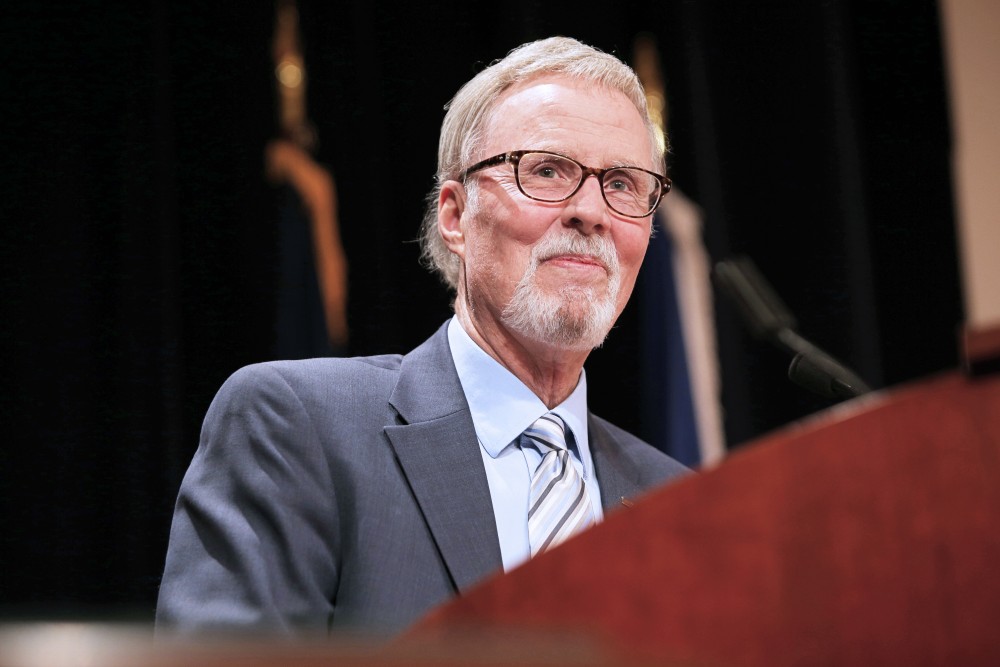Hopes for the future of public education

GVL/Kevin Sielaff Michael P. Flanagan, MDE
Feb 12, 2015
To celebrate its 50th anniversary, the Grand Valley State University College of Education hosted Department of Education State Superintendent Mike Flanagan and three local school administrators on Jan.10 at DeVos Center’s Loosemore Auditorium for a panel discussion on the future of public education.
The panel was asked to describe the greatest challenges and hopes for public education, as well as their visions for the future.
During the discussion, the administrators agreed on the value of coming to a consensus and working toward common goals.
Flanagan joined the panel to share what he sees as important hopes and challenges.
“Having worked with two governors in Lansing since 2005, there’s a story to be told and it’s not pretty,” he said. “There’s a system in place and it’s not kid-oriented.”
Michigan faces unique difficulties, including economic depression and high poverty rates, and answers lie in nonpartisan solutions at the state level, Flanagan said.
Flanagan said he was able to work with both governors, and he was proud of Gov. Rick Snyder’s support for early learning programs.
He encouraged future teachers to be leaders in their classrooms, and said GVSU graduates may be the “first generation of education entrepreneurs” leading the way to new innovations.
“We can only do this if we get the right people,” he said.
Educational needs must be addressed on an individual basis, from an early age, and one challenge is moving from the “all kids can learn” model to one that serves each kid, Flanagan said.
Flanagan ended his remarks with some broad hopes for GVSU College of Education students.
“Teachers are the No. 1 force for good in the world,” he said.
Assistant Superintendent of Grand Rapids Public Schools Carolyn Evans highlighted the challenge of the achievement gap among students of high and low socioeconomic status and touched on the vision to establish “a continuum of opportunity.”
“A resilient challenge public schools face is understanding how to educate students of all backgrounds, regardless of their ZIP code,” she said.
The solutions are to “change deep structures” and to “meet children where they are,” she said.
Evans said she sees hope in curriculum that recognizes the need for 21st century skills and thinkers, and that coherence is the key to developing a school environment of success.
Hudsonville Public Schools Superintendent Nicholas Ceglarek said it is important for educators to come together on common interest and for teachers to develop authentic relationships with their students. Students need the opportunity to become “service leaders” and to connect with their communities, he added.
Superintendent of Fennville Public Schools Dirk Weeldryer said a major challenge for his district is rural poverty, and that his district is actively seeking ways to ensure that all students can compete.
Some solutions to improving public education include promoting more seamless integration of education throughout students’ lives and to “lift up the education profession and make it a valued part of society,” he said.
“It’s not just a K-12 system,” he added. “It’s from birth until students are done with college education.”

























